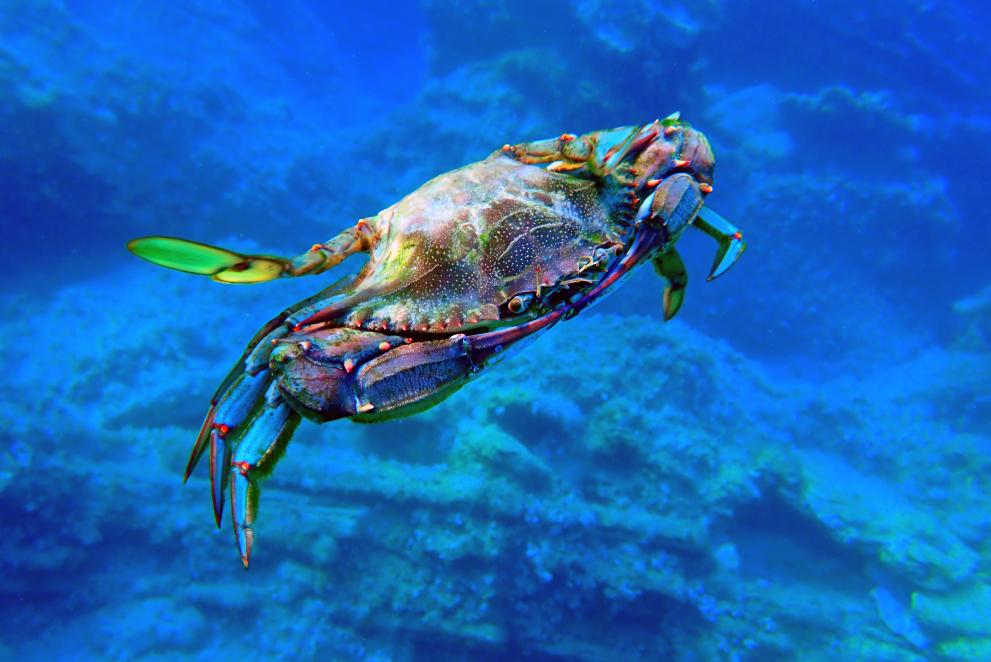
Are you familiar with the concept of “invasive species”? They come in different shapes and sizes and can cause an impact in global biodiversity and in ecosystem function worldwide.
As the report “Invasive species in the Baltic Sea and their impact on commercial fish stocks” published by CINEA in December 2023 highlights, four main species have significantly impacted the Baltic Sea: round goby, sea walnut, mud crab and fishhook water fleaSome of these species cause problems in the ecosystems of the area of the Baltic Sea because they represent prey competition to native fish, mostly for zooplankton.
One could wonder, how to deal with this situation? What is the solution for these species that take over habitats and greatly affect the dynamics of the traditional ecosystems? Well, it seems that cuisine might be a solution.
Although the invasion of these species can cause alarm to a certain extent, it is important to focus on the potential opportunities that can be seized, for instance, through the engagement of chefs with creativity, knowledge and skills to cook sustainable, nutritious and delicious food. That is when the LIFE project “LIFE Climate Smart Chefs” comes to play. A project that received a funding of 961,976 EUR, with beneficiaries from Italy, Finland, and Ireland but involving chefs from all EU27 countries.
The project aims to advance the EU Climate Policy and the Farm to Fork (F2F) Strategy by engaging European chefs as advocates for low-emission, nutritious, and affordable diets that mitigate environmental impacts, enhance public health, and address food waste.
Perhaps the invasion of this species can be transformed into a valuable resource by the 160+ chefs trained in sustainable and healthy diets, along with the 100+ participants in the first edition of the Climate Chefs Award. Incorporating these species into new recipes could be an effective solution for managing their invasion. An example of good practice is the recipe developed by Cheffe Chiara Pavan, Climate Pact Ambassador and Member of the LIFE Climate Smart Chefs Advisory Board, to cook blue crabs, the main invasive species in the category of crabs.
Some examples of these practices have already started showcasing success in Italy: “We serve it in a refreshing salad with a twist of rosemary, diced onion and a dash vinegar,” “We also serve it alongside spaghetti with cherry tomatoes and squid ink.”, said Pavan.
Thus, despite the challenges that these species represent, it seems that sustainable solutions can still be found.
Details
- Publication date
- 26 July 2024
- Author
- European Climate, Infrastructure and Environment Executive Agency
